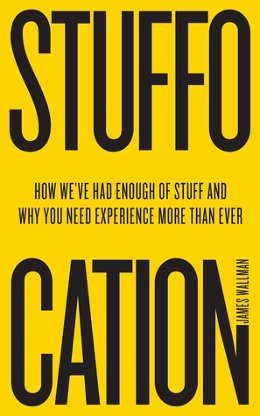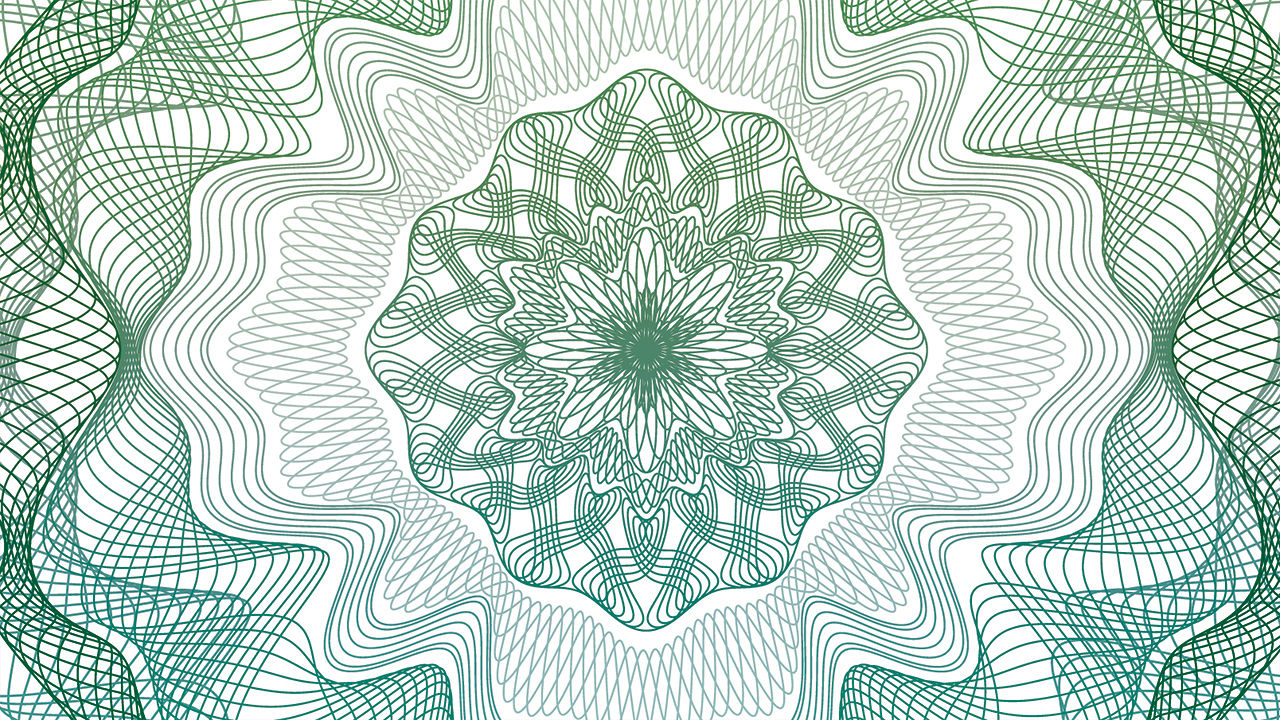Stop Accumulating Stuff And Start Accumulating Experiences
Could you spend a month and have bought nothing physical by the end of it?
The most important question you'll ever ask yourself--even more important than “sneakers or shoes?”, “what's for dinner tonight?”, or “should I stay or should I go?”--is the same one Aristotle asked over two and half thousand years ago: how should you live in order to be happy?
THE AGE OF ANTI-MATERIALISM

For most of the past two millennia the answer to that question was defined by circumstance, and, in the West at least, controlled by the church. Circumstance remained fairly constant. Life, for most people, for most of those years, was a matter of scraping by, not much above the subsistence level.
The church's message did not waver much either. Happiness, it said, would come in the next life, in heaven. To get there you had to live a good life of moderation, thriftiness and poverty – after all, it was easier for a camel to pass through the eye of a needle than for a rich man to get into heaven. And you had to follow a set of rules. One of those was explicitly anti-materialistic: thou shalt not covet thy neighbour’s house, wife, manservant, maidservant, ox, donkey, or, basically, any of his material possessions.
The church's--and therefore society's--version of the good life remained the same for most of the next two thousand years. It shifted, slightly, for a couple of centuries. During the Crusades, when the church needed Christian solders to protect the Holy Land, you could also be good and happy by fighting for Jesus. After the wars were over, though, the definition returned to the older, simpler message: that you should be moderate, thrifty and poor, and, while you were about it, no coveting anything your neighbor had.
That ideal made a lot of sense when society was static, when, if you were born poor, as most people were, you would stay poor. What was the point, after all, of wishing for something you would never have?
But, as circumstances changed, especially from the 16th century onwards, that version of the good life and happiness did not make nearly so much sense. Thanks to mining, banking, and trade, at first, and, later, the machines of the Industrial Revolution, western society became increasingly prosperous.
THE CHURCH'S PROBLEM WITH PROSPERITY
That created a new problem. For the first time, for large numbers of people, there was tension between church and circumstance, between the version of the good life they heard being preached from the pulpit each Sunday, and the life they were living the other days of the week. Did material success in the here and now really mean they were not living a good life, and that they would not, ultimately, be happy? That did not seem fair. Yet the church's teaching--camel, eye of needle, rich man, heaven--was very clear on this. Through its vast web of preachers though, the church was the only organization with the power to shape, mold and define what the masses believed. As a result, its version of the good life remained the dominant one--until the early 20th century.
Then, the shift in circumstances began to happen more rapidly, especially in the United States. That put the church's teaching even further out of step with day-to-day reality. Worse, the church's advice, that people should be thrifty, moderate and not materialistic, was not delivering the levels of mass consumption that could keep up with mass production.
AMERICA'S BIG, COUNTERINTUITIVE IDEA: CONSUMPTION
Fortunately, around this time, there was a new network, a direct competitor to the church's pulpits, if you like: the mass media of magazines, newspapers, cinema, and radio. The leaders of the secular world--the captains of consciousness--used that network to solve the problem of overproduction, and take advantage of the possibilities of mass production, by preaching a good life that was defined in material, consumer terms, like cars, toasters, radios and dishwashers.
Happiness, according to this new gospel of consumption, could come in this life. To get it, you had to live a good life of profligate, conspicuous consumption – after all, the more you spent, the more work you would create for other people, and the more wealth you would create. To have more you had to spend more, you had to be materialistic: to covet the things thy neighbors, the Joneses, had--if not their oxen and their donkeys, certainly their cars.
This innovative idea was not only counterintuitive, because it flipped the old truth on its head. It was also revolutionary: it sparked the consumer revolution. More importantly, it worked. It took us on an exciting journey to unprecedented material progress. It has also, unintentionally, led us into the perfect storm of Stuffocation--an anxiety brought on from having too many material goods, nowhere to put them, and the sense that this has become a systemic problem--today. Which means it is time, once again, to open our minds to another innovative, revolutionary idea.
MANIFESTO: WHY WE NEED EXPERIENCE MORE THAN EVER
For a new value system to replace materialism, and be the answer to the problem of Stuffocation, it will have to solve all the problems that come with it--like pollution, overconsumption, and status anxiety. It should also take advantage of all the opportunities it contains--like the technologies that give us the benefits of access without the downsides of physical ownership.
It will have to appeal to everyone you would call a captain of consciousness in the 21st century – businesses, governments, you and me. It will have to provide profit for businesses, and jobs for people. It will need to produce taxable income, and a useful benchmark for governments. It should also satisfy our innate desires for happiness, meaning, and status.
Rather than defeatist and dull, it should be aspirational and inspiring. Instead of implying that we have reached the apex of human achievement and that from here on in we should just plateau, it should hold out the promise that life will be better in the future.
The way ahead, out of the storm of Stuffocation, is not minimalism, simple living, or the medium chill. Minimalism, I think, is too negative, too reductive. Simple living is too regressive. The medium chill lacks aspiration. The new value system that will solve Stuffocation, I think, is experientialism.
WHY EXPERIENTIALISM IS THE REVOLUTIONARY IDEA FOR THE 21ST CENTURY
Experientialism will be good for all the stakeholders in our shared future. It will work, to begin with, for all of us. It will make us happier, healthier, richer, in every sense: less clutter, less regret, less anxiety, more meaning, more status, better conversations, more connections, a stronger sense of belonging.
To succeed in this new world, businesses, rather than trying to flog newly positioned but actually the same old stuff, will have to create genuinely new, engaging goods, services and adventures that give us social and experiential currency – that is, a story to tell and an experience worth remembering. And governments, instead of being fixated on increases in GDP and material progress, should shift their focus to improving wellbeing and experiential progress.
A good start would be to raise psychologists to the same level of economists. We also need, alongside the new measures of society's wellbeing and progress, a new measure of personal progress, that is as informative and simple as the figure that tells you your salary, but that expresses your success in experiential rather than material terms.
THE LUDICROUSLY GOOD BENEFITS OF THE EXPERIENTIAL REVOLUTION
If we all--you, me, businesses, and governments--embrace experientialism, I think it can achieve in this century what materialism did in the last. Just as materialism hauled billions out of poverty and delivered standards of living for the masses that would have sounded ludicrous in the first decades of the 20th century, so experientialism, I believe, will do something similar this century. It will generate advances in wellbeing and quality of life that might sound, today at least, like they are the wishful thinking of an idealistic mind: shorter working hours, more time with family and friends, spending our time doing things we really enjoy.
As materialism delivered material progress that was almost impossible for most people to imagine before it happened, so experientialism will deliver experiential progress that is just as hard for most to imagine today.
If you, like many, find that hard to picture, don't worry. There are three steps you can take to try out experientialism today, this week, this month. Step one, de-stuffocate. Step two, don't re-stuffocate. In other words, get rid of the stuff you don't wear, don't use, don't need, and don't go out and buy more stuff you're not going to wear, use, or need.
If you, like many, find that hard to picture, don't worry. There are three steps you can take to try out experientialism today, this week, this month. Step one, de-stuffocate. Step two, don't re-stuffocate. In other words, get rid of the stuff you don't wear, don't use, don't need, and don't go out and buy more stuff you're not going to wear, use, or need.
HOW TO PLAY THE BREWSTER'S MILLIONS GAME
Step three is the best bit. It's a game I think of as the Brewster's Millions game. It's inspired by the 1902 novel and the 1985 movie, where Brewster has to spend $30 million in a month, and have nothing material to show for it at the end. To play properly, you don't have to spend the full $30 million, but you do have to spend the same amount you would normally spend in a month, and still have nothing physical at the end.
That's all you have to do, to join the experientialists. If you do that, you'll not only be happier, have more status, and a greater sense of who you are, you'll also be one of the pioneers, leading the rest of society along the straightest, most aspirational, most fun road out of the storm of Stuffocation. You'll be leading America, the rest of the west, and the rest of the world from the old age of materialism to the new era of experientialism.
[Illustration: Abstract via Shutterstock]
ADD NEW COMMENT
- Time for introspection is also sorely needed. I see the movement into non-materialism as an excellent opportunity for more outer AND inner experience.
- I am pleased to see the author writing about our society's obsession with (religion of) stuff. The idea that this path is unsustainable seems reasonable.I do take issue with his proposed solution of replacing stuff with experiences. To his credit, he makes a great argument in favor of "de-stuffocation"; however, my concern is that, aside from reducing the need for storage, and reducing the amount of clutter in landfills, we will encounter the very same symptoms with experiences as we do with goods.Without purchasing stuff, we may not be able to see the Jones's new <insert luxury car brand here> in the Jones's driveway, but we may hear about their latest experience. With that, we're right back to the same issue of having to purchase more - this time, it's experiences rather than goods.While this would be economic suicide, I'd like to see someone discussing experiences that can't be marketed - family, community, friendship. Far more fulfilling than fleeting experiences.


3 COMMENTS